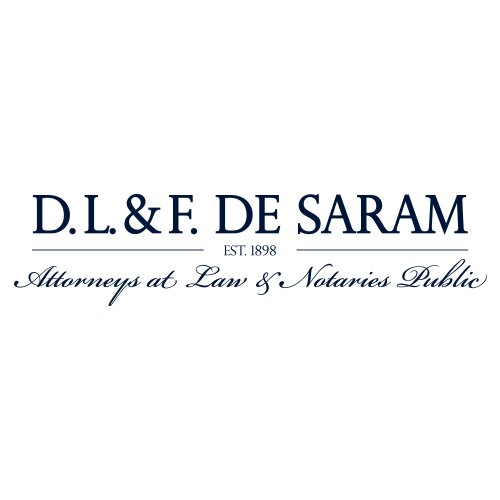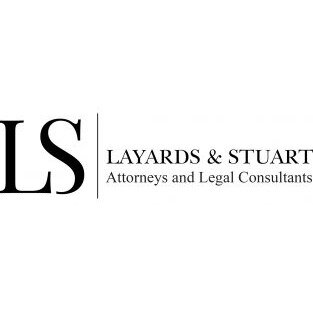Best Employment & Labor Lawyers in Sri Lanka
Share your needs with us, get contacted by law firms.
Free. Takes 2 min.
Or refine your search by selecting a city:
List of the best lawyers in Sri Lanka
About Employment & Labor Law in Sri Lanka
Employment and labor law in Sri Lanka is designed to regulate the relationship between employers and employees, ensuring fair treatment, safe work environments, and the protection of rights. These laws cover a wide range of issues, including employment contracts, wages, working hours, occupational safety, and dispute resolution. As part of its commitment to international labor standards, Sri Lanka has integrated various ILO conventions into its legal framework, strengthening the rights and protections afforded to workers.
Why You May Need a Lawyer
Individuals often seek legal advice in employment and labor matters to navigate complex situations effectively. Common scenarios include contract disputes, wrongful termination, discrimination or harassment claims, wage and hour disputes, and workplace safety violations. A lawyer specializing in employment and labor law can provide valuable guidance, helping individuals understand their rights and obligations, negotiate settlements, or represent them in court or before labor tribunals.
Local Laws Overview
The employment and labor legal landscape in Sri Lanka is governed by several key pieces of legislation. The main acts include the Shop and Office Employees Act, the Wages Boards Ordinance, and the Industrial Disputes Act. These laws set out the minimum standards for employment terms, including working hours, holidays, remuneration, termination, and dispute resolution processes. Additionally, the Factories Ordinance outlines safety measures and standards for workplace environments.
Frequently Asked Questions
1. What is the minimum wage in Sri Lanka?
The minimum wage in Sri Lanka is determined by the Wages Boards, which set minimum rates for different trades. It's important to consult the most recent updates to ensure accuracy.
2. What are the standard working hours per week?
For employees covered by the Shop and Office Employees Act, the standard working hours are typically set at 45 hours per week.
3. Are employees entitled to overtime pay?
Yes, employees who work beyond their regular hours are entitled to overtime pay, typically calculated at a rate of 1.5 times their normal hourly wage, as stipulated in relevant labor agreements or laws.
4. How is annual leave calculated?
Under Sri Lankan law, employees are generally entitled to 14 days of annual leave after a year of service. Public holidays and other forms of leave, such as sick leave, are also provided.
5. What constitutes wrongful termination?
Wrongful termination refers to dismissal without just cause or due process, violating terms of the employment contract or labor laws. Legal advice is often necessary to address these situations.
6. Can an employee demand a written employment contract?
Yes, employees have the right to a written contract outlining the terms of employment, which serves as a fundamental document in employment relations.
7. What should I do if I experience workplace harassment?
It's important to report harassment to a designated HR official or management. Seeking legal advice can help ensure your complaint is addressed and your rights are protected.
8. How are employment disputes typically resolved?
Most employment disputes in Sri Lanka are resolved through mediation or arbitration facilitated by labor tribunals. Legal representation may be needed to navigate these processes effectively.
9. Is there legal protection for whistleblowers?
While Sri Lanka lacks a dedicated whistleblower protection law, various provisions within existing labor laws offer some level of protection against retaliation to those reporting legal violations.
10. Are there specific laws for expatriate workers?
Expatriate workers in Sri Lanka are subject to the same labor laws as local workers, but they may also require specific work permits and visas to work legally in the country.
Additional Resources
For more information or assistance, individuals can reach out to the Department of Labour in Sri Lanka, the Employers' Federation of Ceylon for employers, or trade unions for employees. Legal aid organizations and law firms specializing in employment law can also be valuable resources.
Next Steps
If you require legal assistance in employment and labor matters, consider consulting with a lawyer who specializes in this area. They can provide initial advice, evaluate your situation, and assist with any legal proceedings necessary. Additionally, gathering all relevant documentation, such as contracts and correspondence, is crucial in preparing for your consultation.
Lawzana helps you find the best lawyers and law firms in Sri Lanka through a curated and pre-screened list of qualified legal professionals. Our platform offers rankings and detailed profiles of attorneys and law firms, allowing you to compare based on practice areas, including Employment & Labor, experience, and client feedback.
Each profile includes a description of the firm's areas of practice, client reviews, team members and partners, year of establishment, spoken languages, office locations, contact information, social media presence, and any published articles or resources. Most firms on our platform speak English and are experienced in both local and international legal matters.
Get a quote from top-rated law firms in Sri Lanka — quickly, securely, and without unnecessary hassle.
Disclaimer:
The information provided on this page is for general informational purposes only and does not constitute legal advice. While we strive to ensure the accuracy and relevance of the content, legal information may change over time, and interpretations of the law can vary. You should always consult with a qualified legal professional for advice specific to your situation.
We disclaim all liability for actions taken or not taken based on the content of this page. If you believe any information is incorrect or outdated, please contact us, and we will review and update it where appropriate.
Browse employment & labor law firms by service in Sri Lanka
Sri Lanka Attorneys in related practice areas.
Browse employment & labor law firms by city in Sri Lanka
Refine your search by selecting a city.

















